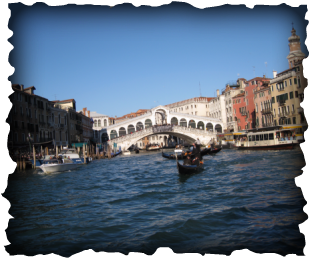 Dear First Gen, One of my favorite hobbies is traveling. My brother and I have a friendly competition where if either one of us visits a place before the other, the other sibling works overtime to avoid traveling to that location. (My parents are not fans of our "explorer" spirit.) I have met several first gens who do not own a passport or have used their passport to only travel to their family's birth country. Yes, it was shocking for me to hear, too! Recently, I returned from a trip and enjoyed the culture, the food, beach and also learned how two languages were simultaneously taught in a classroom and reinforced at home. For example, my friend and I were in the post office mailing postcards to our friends and family back home. My friend asked the postal worker how to say pen in their language and she responded. Another customer, older woman, joined the conversation and began singing a song that taught her certain words in both languages including the pen. Another customer overheard her and sang along and then the postal worker chimed in and sang along, too. The young postal worker confirmed a decades-old classroom instruction still being taught and had not been forgotten by the two older women. A fellow first gen has written the guest post below: Hi, As a first-generation law student, I was surprised that so many of my classmates were children of attorneys. Many of them had worked at their parents’ law firms prior to starting law school and they had established connections. I, on the other hand, didn’t have the skills or a single connection to lean on when I entered law school. But I have found that a love for travel is a great way to connect with people. There are so many reasons to study abroad. You will make friendships that last a lifetime, you will experience a new country as a local, and you will broaden your horizons more than you thought possible. Your study abroad experience is also something that will enhance your ability to connect with people throughout your life. When you go on interviews or to networking events, many other professionals will have traveled extensively, and your study abroad experience will give you talking points and help you make connections with people who share your passion for traveling. As excited as I was to study abroad in my second year of law school, I was even more excited to head to the “motherland.” My relatives left Italy in the 1920s, but their traditions remained strong and have influenced my life in many ways. Although I had been to Europe once before, I had never been to Italy. The program I applied for only allowed two students from our university to go. My friend and I spent almost six months in the small city of Parma, which is in northern Italy, between Milan and Modena. I had never heard of Parma prior to this trip, but I was familiar with prosciutto—or Proscuitto di Parma as it’s called there—and Parmesan cheese—or Parmigiano Reggiano—which as their names suggest, are from Parma.
When we first arrived in Italy, I hated it. I was without the many comforts of home: no car, no cell phone, and no access to the internet. I missed my friends and family and I hated that the only person who could grant me internet access at the university was on vacation for an entire month. I spent the first couple weeks trekking through snow in my sneakers in search of a decent place to eat and a grocery store. I eventually found several good places to eat and a few grocery stores, but it was so much easier to reject all the newness instead of embracing it. Once I let that attitude go and abandoned my perception of how I thought things should be, I suddenly fell in love with Italy. My roommate and I shared a small apartment that was a 20-minute walk from the center of town. Our landlord was a woman named Anna Maria who lived in the apartment above us. Despite being well into her 80s, she often rode her motorcycle into town, draped in a cheetah shawl. Our first few weeks there, she welcomed us with home-cooked meals, freshly sliced prosciutto, and pastries, just like an Italian nonna. There are so many things to love about Italy, including good food, good wine, and a laid-back attitude. In Italy, shopkeepers don’t always open according to schedule, train strikes are common, and their holidays are taken very seriously. I used these holidays to really travel. I spent a long weekend in Venice, went on a 10-day tour of Italy, took a cruise to Croatia, Turkey, and Greece, and spent almost a month visiting Paris, Spain, and the French Riviera. I experienced overnight planes, trains, and buses, and each came with their own stories and lessons learned. Of all the places we went, Venice was the most memorable for me. Everyone knows about the canals and the gondola rides, but I had no idea there would be little waterways everywhere. Every few blocks you go up and down another footbridge. It was like nothing I had ever seen and far exceeded my expectations. Something about Venice is so majestic. We were lucky enough to be there during a weekend celebration where they filled a fountain in St. Mark’s square with wine. There were women in traditional dresses filling up beautiful, hand-painted ceramic jugs with wine and pouring it into cups that they had handed out to people in crowds. There was no cover charge, no ID checks; just free wine, music, and celebration. Choosing to study abroad did not come without its challenges for me. I was on a clear path when I went to law school, working toward a job with the state as a criminal attorney. I took courses and developed skills that would help me land this job. However, I did not realize the impact choosing to study abroad in the spring semester of my second year of law school would have on my job prospects until it was too late. Many employers make their hiring selections from their class of 2L summer interns, and I was unable to apply for these internships while I was in Italy without internet access. By the time I returned home and resumed my job search, I found that many employers were only hiring candidates who had completed a successful 2L summer internship in their office. Sometimes I think that my decision to study abroad cost me my dream job. Rather than focusing on landing a summer internship at such a crucial time, I was busy traveling around Europe. With that being said, I feel like my experience has helped me connect with people professionally and personally in more ways than I would have ever thought possible, and I am happier because of it. Even if the timing of my study abroad program caused me to shift career paths, I would still do it again in a heartbeat. With our global economy, cultural awareness is increasingly important. Several jobs I have interviewed for have explicitly asked me about my experiences working with people from other cultures. If you have studied abroad, these questions give you the opportunity to explain two unique skills you will have gained from studying abroad. First, you have immersed yourself in a different culture, learning to be aware and sensitive. Second, you are independent enough to go to another country for a long period of time, which signals to employers that you are capable of problem solving. You will bring a different perspective to your job as a result of your study abroad experience. The Italians take life slow, and not too seriously. When the IT guy goes on vacation for a month, you don’t worry about IT problems while he is gone, and when train strikes happen—and they will happen—you learn to laugh at the situation, even if it throws off your plans. I think that mentality is important to understand when dealing with people from other countries. These experiences are great lessons in patience. If you are even toying with the idea of studying abroad, go for it. Step outside your comfort zone. It will be hard at first, but the rewards will be well worth it. The only thing you will regret is not going. Fellow Riser, Kelly ***Disclaimer: 2016. All rights reserved. All data and information provided on this site is for informational purposes only. No reproduction of any content on the website without the express permission of the author. The text, pictures and videos are the sole property of FirstGenRise.
3 Comments
1/26/2024 06:23:27 am
Hey guys, if you've been to Dunkin Donuts recently, you gotta take their survey at www.dunkinrunsonyou.com.co/enter/! They wanna hear what you think about their food, service, everything. And the best part? You could win a free donut from them! So, why not take a few minutes to give them some feedback and maybe score yourself a sweet treat? It's a win-win, guys! Let's go get those donuts!
Reply
2/22/2024 12:33:33 am
Thank you for sharing your incredible travel experiences with us! Your blog has become a virtual passport to adventure, offering readers a glimpse into the beauty and wonder of the world. Your passion for exploration and commitment to authenticity shine through in every post, inspiring us to chase our own travel dreams. Keep exploring!
Reply
Leave a Reply. |
|

 RSS Feed
RSS Feed